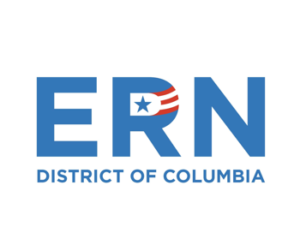
Good evening! My name is Jess Giles. I am a Ward 7 resident, an equity advocate, and the State Director of Education Reform Now DC (ERN DC). ERN DC is a non-profit organization that fights for a just and equitable public education system for all students. I am testifying tonight regarding the twelve recommendations made by the DC State Board of Education’s Committee on Accountability and Assessments regarding the School Transparency and Reporting (STAR) Framework.
I urge the State Board to keep the single summative rating and make it more equitable.
Parents/guardians want to know that their child’s school is safe and provides them with high-quality learning opportunities. They use various tools to help them decide where to send their students to school. These tools include STAR or school quality ratings (37 percent), school report card data (28 percent), and school visits (48 percent), as reported by a survey conducted by the DC Policy Center.[1] Some even use sites like Great Schools to determine school performance. Because there is a lot of information out there, parents/guardians should be able to count on the DC government to provide one website where they can find easy to understand information that they care about on every school and a single transparent metric for determining annual school performance.
Some argue we should remove the single summative rating because it increases racial or class segregation. There isn’t conclusive evidence of that. In fact, in school years 2016-17 and 2018-19 there were no large changes in racial and ethnic or socioeconomic diversity at the school level given student demographics.[2]There were also not a lot of changes in diversity in school years 2014-15 to 2016-17 either.[3]
The single summative rating must be tied to support that will improve the education and opportunities students are receiving. The State Board must provide strong oversight of the Every Student Succeeds Act (ESSA) required setting aside of 7% of Title I funds supporting schools identified in need of support under state accountability systems.
We can make the star rating more equitable by assigning greater weights to schools serving students with special needs, English Language Learners, and students designated as “at-risk” well. The State Board should hold focus groups with these families to determine how best to use the DC School Report Card and Star Framework to serve their students better. The lessons learned from these focus groups can help OSSE and the DC State Board identify ways to incentivize schools to open their doors to more of these students and identify resources and inputs that will facilitate learning and growth.
There are many aspects of the recommendations that I support, but I hope you will strengthen them by keeping the single summative rating and making equitable changes that will vastly improve education for our most marginalized and undereducated students. Thank you for allowing me to testify.
[1] DC Policy Center. “Exit & voice: Perceptions of the District’s public schools among stayers and Leavers.” https://www.dcpolicycenter.org/publications/school-leavers/
[2] DC Policy Center. “Update: Diversity in D.C.’s public schools, 2018-19” https://www.dcpolicycenter.org/publications/diversity-in-schools-update/
[3] DC Policy Center. “Landscape of Diversity in D.C. Public Schools” https://www.dcpolicycenter.org/publications/landscape-of-diversity-in-dc-public-schools/